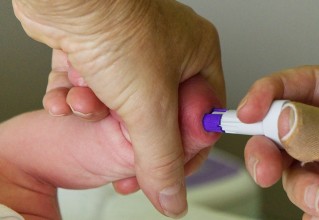Human Rights: Forced Episiotomies without consent
16 Sep, 2019It is incredibly important for women to be informed of all the risks and benefits of any drug or procedure offered to them when pregnant and during childbirth especially as these are such vulnerable times. This means informing them of the history of the drug, any side effects, short and long term risks and potential consequences.
There have been a number of stories about forced episiotomies over the years and without wanting to scare women, because there are plenty of great birth stories as well, I would just like to share these women’s stories to emphasise how important it is to be aware of your rights.
Your right to request information on the drug or procedure, your right to say no, your right to ask for alternatives, and provide informed consent. This means consent that has been given freely without co-oercing the patient with statements to make them feel guilty or threatened to be reported to social services.
Kimberly Turbin
Kimberly Turbin was violently assaulted, given a forced episiotomy without her consent by Californian Doctor Alex Abbassi. Her birth was videoed and she can be heard saying No to the doctor as he cuts her 12 times against her will. The video went viral on Youtube and with the help of Improving Birth organisation, she was able to seek compensation. Abbassi lost his license but with the length of the trial (for battery and assault) impacting Kimberly's mental health, she chose to settle out of court. She has ongoing issues with urinary and faecal incontinence, painful sex, had to change her diet due to pain when going to the bathroom, and has trouble sitting for longer periods of time.
There is a really good overview of her story and the comments made during her labour in this link http://humanrightsinchildbirth.com/kellys-story and here https://www.opendemocracy.net/en/transformation/forced-episiotomy-kellys-story/
Suzanne Mohammad
Another survey in the US in 2015 of 2400 women in the united states found that less than half of the participants felt like they had a choice in the procedure. But its not only in the United States that it happens. Its a global issue. This article mentions a nurse in Jordan, called Suzanne Mohammad for the purposes of this story, who was forced to have an episiotomy even though she was fully dilated and ready to push. Due to cultural beliefs in Jordan, her insistence on not having one, and research she kept citing was not enough to combat the doctors belief that first time mothers have tight vaginas and must be cut and stitched to prevent tearing. She was pushed, pulled, humiliated, and coerced. She went on to have urinary incontinence and pain during sex for a year, and PTSD as well. Jordan has an episiotomy rate of 41.4%
https://brightthemag.com/when-childbirth-feels-like-assault-779a5859185e
Informed Consent
While Kimberly’s story has been widely reported on as the whole thing was caught on video, there are many other women how have had similar experiences. This 2013 Childbirth connection survey found that 6 out of 10 episiotomies are performed without consent. http://transform.childbirthconnection.org/reports/listeningtomothers/
This UK article “Consent during childbirth is a joke” discusses the result of mum’s group surveys where women report episiotomies performed without their consent and other procedures such as membrane sweeps, or instances where consent was given but information was not properly explained to them.
This research article discussing the potential for litigation in routine episiotomies vs selective episiotomies mentions an online survey conducted in Czech Republic where participants stated their experiences with episiotomies. They reported that majority of women (54%) never gave permission for an episiotomy to be performed on them. The survey results were published in the following journal: Begley C, Sedlicka N, Daly D. Respectful and disrespectful care in the Czech Republic: an online survey. Reprod Health 2018; 15: 198.
The study also states that researchers found that “59% of mothers reported that they were pressured to undergo an episiotomy and another 8 to 23% reported that they were pressured to undergo labor induction, epidurals, or C-sections” It refers to the two journals below to support this statement:
https://bmcpregnancychildbirth.biomedcentral.com/articles/10.1186/s12884-018-1747-8
https://www.thelancet.com/journals/lancet/article/PIIS0140-6736(16)31470-2/fulltext
Refer to this link for the full text: https://www.europeanreview.org/wp/wp-content/uploads/1847-1854.pdf
Prevalence of Episiotomies
Episiotomies are still performed at significantly high rates around the world. This article in Maternal Health Task Force looks at rates around the world and comments on the variances in rates across the world being indicative of a lack of standardised approach and selective episiotomies based on risk and need. It also provides a link and research from the Lancet report on rates around the world with most recent data. However this data is from early 2000s so would be great it something more recent was available.
Link: https://www.mhtf.org/2017/05/30/advancing-an-evidence-based-approach-to-episiotomy/
This study found that older physicians are more likely to perform an episiotomy because of the time in which they were trained and the thinking at the time. They are more set in their ways and less likely to be adaptable and change as research and recommended practice changes. https://onlinelibrary.wiley.com/doi/full/10.1111/1475-6773.13132
Get The Best Of Sleepy Roo Delivered To Your Inbox
Subscribe to my newsletter and get the latest info on baby sleep! You can unsubscribe at any time.



